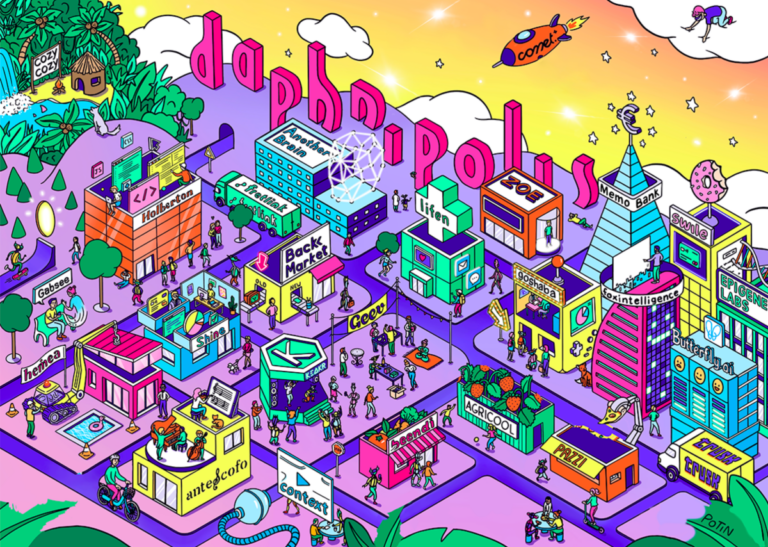AI Agents: Pioneering the Rise of Solo Unicorns and Their Societal Impact
In today’s digital landscape, the concept of a one-person micro-enterprise has gained significant traction thanks to the rise of cloud computing and distributed digital infrastructures. With affordable on-demand computing, remote collaboration tools, and e-commerce platforms, launching a solo entrepreneurial venture is more accessible than ever before. However, the challenge lies in scaling these one-person businesses into substantial enterprises capable of achieving unicorn status.
Scaling One-Person Businesses: The Role of AI
Traditionally, scaling a business required extensive resources and a diverse skill set to attract and maintain a robust customer base. Now, AI agents are emerging as a game-changer for solo entrepreneurs, allowing them to automate tasks and make decisions with varying levels of autonomy. This technology can enable multiple AI agents to collaborate, facilitating the completion of complex tasks without constant human oversight.
Insights from Industry Leaders
In a discussion at the World Economic Forum, OpenAI’s Sam Altman predicted a future where one-person billion-dollar companies could become a reality, significantly aided by AI. He remarked, “In my little group chat with my tech CEO friends, there’s this betting pool for the first year that there is a one-person billion-dollar company.” This vision emphasizes the transformative potential of AI for solo entrepreneurs.
The Evolution of Billion-Dollar Companies
Historical data shows that the tech industry has already produced several billion-dollar companies with minimal staff. For instance:
- Microsoft acquired Mojang, the maker of Minecraft, for $2.5 billion with only 40 employees.
- Facebook purchased WhatsApp for $19 billion when it had just 55 employees.
- Instagram was acquired by Facebook for $1 billion with a mere 13 employees.
While these examples highlight the potential for small teams to drive massive valuations, they differ from the concept of a one-person unicorn.
The Future of Entrepreneurship with AI
Kanjun Qiu, CEO of AI research lab Imbue, believes that AI will primarily benefit self-service business models, enabling them to thrive without extensive go-to-market teams. He stated, “The places where it’ll be easiest, and first, are ‘bottoms up’ — either consumer or prosumer — products that don’t require large go-to-market teams.”
However, Qiu emphasizes the importance of human relationships in sales, suggesting that even with AI, building trust with customers remains crucial.
AI’s Impact on the Workforce
AI technologies are already making waves in various sectors. For example, companies like Lattice are designing digital workers with official employee records, integrating AI agents into their organizational structures. Sarah Franklin, CEO of Lattice, noted that this shift represents a new era where humans and AI collaborate effectively.
Transitioning to a New Workforce Dynamic
As AI continues to advance, the workforce landscape will inevitably change. According to Mitchell Green, founder of Lead Edge Capital, the rapid evolution of AI will create new job opportunities, although the specifics remain uncertain. He stated, “If you think about when the iPhone came out in 2007 — Uber and Airbnb are now $100 billion companies. [They] could not have existed before this.”
This sentiment underscores the idea that while AI will replace certain jobs, it will also pave the way for new industries and roles that we cannot yet envision.
The Role of Humans in an AI-Driven World
Despite the potential for one-person unicorns, many experts believe that a successful business often requires a founding team to share the entrepreneurial journey. As Richard Socher, CEO of You.com, mentioned, “We, as CEOs, are going to be the first generation that manages people and AI.” This indicates that employees will increasingly take on roles as managers of AI systems, fostering a collaborative environment.
Conclusion: The Path Forward
While the vision of a true one-person unicorn remains uncertain, the possibilities offered by AI technologies are vast. The path to entrepreneurial success may involve a combination of human ingenuity and AI capabilities, leading to innovative business models that leverage both. For those interested in exploring how AI can transform their ventures, resources such as Forbes Technology provide valuable insights and updates.
As we navigate this evolving landscape, the question remains: will society be prepared to adapt to the changes brought about by AI-driven entrepreneurship?







